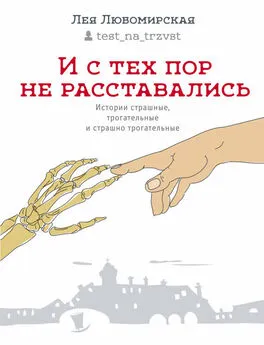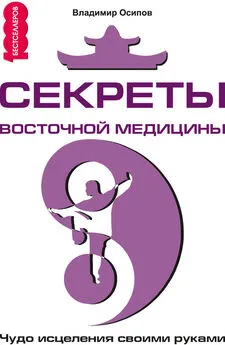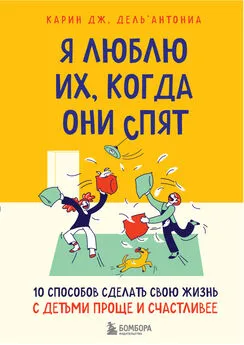Карина Гальченко - Секреты владения английским. Пора всё расставить по своим местам!
- Название:Секреты владения английским. Пора всё расставить по своим местам!
- Автор:
- Жанр:
- Издательство:ЛитагентРидеро78ecf724-fc53-11e3-871d-0025905a0812
- Год:неизвестен
- ISBN:9785448319914
- Рейтинг:
- Избранное:Добавить в избранное
-
Отзывы:
-
Ваша оценка:
Карина Гальченко - Секреты владения английским. Пора всё расставить по своим местам! краткое содержание
Книга идеальна для читателей с уровнем beginner/elementary. Автор поможет разобраться с базовыми временами, используя нестандартные и одновременно простые объяснения. Пособие можно использовать как для самостоятельного изучения английского, так и для занятий с репетитором. Вы сможете отслеживать свои успехи в освоении той или иной темы благодаря наличию ключей ко всем практическим упражнениям. Вы, наконец, разберётесь, как устроен английский язык, и начнёте правильно формулировать свои мысли.
Секреты владения английским. Пора всё расставить по своим местам! - читать онлайн бесплатно ознакомительный отрывок
Интервал:
Закладка:
14) Marina often goes to the theatre.
15) The students do homework every day.
Упражнение 2
Для каждого утверждения напишите отрицание
1) My parents live in Russia. – My parents don’t live in Russia.
2) Her brother likes fast food. – Her brother doesn’t like fast
food.
3) The dog never barks. – The dog doesn’t bark (= The dog
doesn’t ever bark)
4) I get up at 8 every day. – I don’t get up at 8 every day.
5) She watches love stories at the weekend. – She doesn’t
watch love stories at the weekend.
6) We know English. – We don’t know English.
7) Linda seldom smokes. – Linda doesn’t smoke.
8) Peter sometimes does homework. – Peter sometimes doesn’t
do homework.
9) You work every day. – You don’t work every day.
10) Your mother often cooks. – Your mother doesn’t cook often.
Упражнение 3
Для каждого утверждения напишите вопрос
с вопросительными словами, приведёнными ниже
What – что? Какой?
Where – где? Куда?
How – как?
How much \ many – сколько?
How often – как часто?
Why – почему? Зачем?
1) I live in Turkey. – Wheredo you live?
2) They read a lot of books. – How many booksdo they read?
3) These friends meet every day. – How oftendo these friends
meet?
4) I go to bed early on Sundays. – Whydo you go to bed early
on Sundays?
5) Liza drinks 2 cups of coffee a day. – How much coffee does
Linda drink a day?
6) He seldom cooks. – How oftendoes he cook?
7) The woman loves milk very much. – Whatdoes the woman
love very much?
8) The children rarely play in the street. – Wheredo the
children play rarely?
9) Your father works in the office. – Wheredoes your father
work?
10) The managers finish two projects a day. – Howdo the
managers work?
Упражнение 4
Используя картинки и подсказки, расскажите о своей
ежедневной рутине
I get upat 7 o’clock every day.
Then I drink a cup of coffee.
I read a newspaperin the morning.
If I have time, I watch television.
Or I talk to my friendon the phone.
Then I walk my petin the street or in the park.
After this I go to work.
I usually start workat 9 o’clock in the morning.
I normally have lunchat about 1 o’clock.
I finish workat 5 o’clock in the evening.
I come homeat 6 o’clock if I don’t go to the shop or to a friend.
I cook dinnerwhen I come home or I sometimes eat in a café.
In the evening I like to relaxand forget about work.
Упражнение 5
Расскажите о ежедневной рутине своего друга \ подруги,
используя материалы из предыдущего упражнения
и дополнительные слова, которые уже вам встречались ранее
My friend never gets up early. She starts work at 10 o’clock, so she usually gets up at 8 in the morning. She drinks a cup of black tea and eats a sandwich. Then she watches news on television and feeds her cat. She works in the office near her house and usually goes there at 9.30. Helen likes her work very much. She plans her day in the morning and has lunch in the afternoon. Helen never cooks at home because she doesn’t have time for this. She usually eats with friends in a café or restaurant. In the evening the girl reads books, chats on Facebook and relaxes. She also plays with her dog and goes for a walk with it.
(!) В упражнениях №4—5 у вас должны быть свои варианты. Те, которые даны в ключах, рекомендуется использовать лишь для примера и вдохновения ☺
Глава 3
Упражнение 1
Вставьте в пропуски соответствующую форму глагола to be
1) The house is nice.
2) The people are in the room.
3) My mother is in the kitchen.
4) The man is in the office.
5) I am a director.
6) We are clever.
7) The chair is comfortable.
8) The children are happy.
9) The project is simple.
10) You are beautiful.
Упражнение 2
Образуйте отрицания для предложений из предыдущего
упражнения
1) The house isn’t nice.
2) The people aren’t in the room.
3) My mother isn’t in the kitchen.
4) The man isn’t in the office.
5) I am not a director.
6) We aren’t clever.
7) The chair isn’t comfortable.
8) The children aren’t happy.
9) The project isn’t simple.
10) You aren’t beautiful.
Упражнение 3
Образуйте вопросы для предложений из упражнения №1,
используя подсказки
What houseis nice?
Whereare the people?
Whosemother is in the kitchen?
Whereis the man?
Whoare you?
Whois clever?
What chairis comfortable?
Whose childrenare happy?
Whyis the project simple?
Whois beautiful?
Упражнение 4
Образуйте вопросы к следующим предложениям. Будьте
внимательны, так как в некоторых случаях потребуется
использование вспомогательного глагола DO \ DOES
1) This man is tired. – Why is the man tired?
2) John goes to bed very late every day. – What time does
John go to bed every day?
3) They know English. – What do they know?
4) Her brother smokes. – Does her brother smoke?
5) The book is on the bookshelf. – Where is the book?
6) My aunt is very rich. – Whose aunt is very rich?
7) Children go to school every day. – Do children go to school
every day?
8) She is an actress. – Is she an actress?
9) Liza is tall and slim. – Is Linda tall and slim?
10) The children often play in the garden. – Do the children
often play in the garden?
Упражнение 5
Сформулируйте предложения, используя следующие слова
1) this / question / important – This question is important.
2) the / people / the / in / street – The people are in the street.
3) Mike / not / have / for / coffee / breakfast – Mike doesn’t
have coffee for breakfast.
4) children / the / have / a shower / supper / before – The
children have a shower before supper.
5) parents / his / old / very – His parents are very old.
6) work / he / office / in / the? – Does he work in the office?
7) where / she / work? – Where does she work?
8) footballer / brother / her / a – Her brother is a footballer.
9) baby / hungry / the – The baby is hungry.
10) Bob / a / walk / pet / morning / the / in? – Does Bob walk
a pet in the morning?
11) they / listen / not / the radio / to – They don’t listen to the
radio.
12) your / wear / glasses / grandma – Your grandma wears
glasses.
Упражнение 6
Придумайте несколько предложений о себе или о своём друге,
используя простое настоящее время с глаголом TO BE и без
него. Расскажите о:
профессии
местонахождении
характеристиках
I am a journalist. I work for a business newspaper. It is very
interesting because I learn a lot of facts every day. I live and
work in Moscow. This city is big and popular. I am happy to live
here.
Глава 4
Упражнение 1
Раскройте скобки, употребив глагол в нужной форме.
1) This baby cries every night.
2) The woman has five children – 2 sons and 3 daughters.
3) The trees are green in summer.
4) Her friend doesn’t live in America.
5) The computer is new.
6) The children have a lot of questions.
7) He doesn’t do homework every day.
8) The sun shines brightly here.
9) The table is dirty.
10) Miranda has three cats.
11) We are happy together.
12) She speaks very quickly.
13) Bob has a good car.
14) They don’t know French.
15) The books are interesting.
Упражнение 2
Образуйте вопросительные предложения
1) Our house is big and comfortable. – Whose house is big and
comfortable?
2) Your daughter is beautiful. – Is your daughter beautiful?
3) I am a good constructor. – Are you a good constructor?
4) We have a good family. – What family do you have?
5) They understand the idea. – What do they understand?
6) Your English is good. – Is my English good?
7) She has an expensive mobile. – What mobile does she have?
8) My friends don’t like detectives. – What books don’t your
friends like?
9) Linda has a good job. – Does Linda have a good job?
10) The rooms are light. – Are the rooms light?
11) My parents rest in the country house. – Where do my
parents rest?
12) The student has a mistake here. – Where does the student
have a mistake?
13) Her name is very difficult. – Whose name is very difficult?
14) The television doesn’t work. – Does the television work?
15) This man has a long nose. – What nose does the man
have?
Упражнение 3
Сформулируйте предложения из слов, которые даны ниже.
Используйте вспомогательные глаголы в случае
необходимости
1) know \ man \ this \ not \ I – I don’t know this man.
2) you \ live \ where \ Moscow \ in – Where do you live
in Moscow?
3) have \ children \ you \ many \ how – How many children do
you have?
4) be \ they \ home \ at – They are at home.
Читать дальшеИнтервал:
Закладка:







